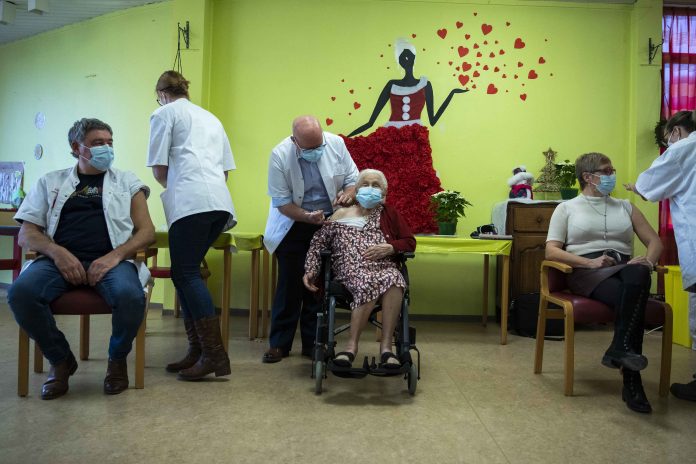
By MIKE CORDER
Associated Press
THE HAGUE, Netherlands (AP) — A former senior health official has called the Netherlands’ coronavirus vaccination strategy “embarrassing,” as the nation waits until Jan. 8 to begin administering shots while other nations in Europe and elsewhere already have started vaccinations.
Roel Coutinho, a respected former director of the Center for Infectious Disease Control at the National Institute for Public Health and the Environment, told Dutch current affairs show Nieuwsuur on Monday night: “Every week counts.”
Delaying the start of the vaccination program means that “the overburdening of healthcare will continue for a long time. That means it has an effect not only for people who have COVID, but also for others, because they cannot be admitted or operations have to be postponed.”
The first batch of vaccines made by Pfizer and its German partner BioNTech already have arrived in the Netherlands, but will not be administered until Jan. 8. The government has said it is still involved in preparations including getting IT systems ready to register all the vaccinations and training staff.
“Ultimately, our goal is the highest possible vaccination coverage,” Health Minister Hugo de Jonge said earlier this month. “We can only achieve this if people have confidence in the vaccine and in the vaccination process.”
De Jonge declined comment Tuesday on Coutinho’s criticism.
In another grim measure of the pandemic’s impact, the Dutch government’s Central Bureau for Statistics reported Tuesday that 162,000 people have died in the Netherlands this year, 13,000 more than would be expected in a normal year. The country has registered more than 10,500 COVID-19 fatalities.
“Such a rise in the number of deaths has not been seen since World War II,” the agency said.
The 7-day rolling average of daily new cases in Netherlands has risen over the past two weeks from 48.64 new cases per 100,000 people on Dec. 14 to 58.30 new cases per 100,000 people on Dec. 28, although reported new cases declined over the Christmas holidays.
The country has been in a tough lockdown since Dec. 15, with all schools, bars, restaurants and non-essential shops closed for at least five weeks and restrictions on the number of people allowed to gather indoors and outside.
Health workers are concerned that hospitals across the country are reaching their limits, and some have appealed for the military to be deployed to help cover for staff shortages. Troops already are helping at a military hospital in the city of Utrecht and at a nursing home in the central town of Ede that has been hit hard by infections.
The Defense Ministry said it was sending a team to assess requests for help in three regions that warned Monday they were struggling to deliver even the minimum level of care.
Defense Minister Ank Bijleveld-Schouten said troops would pitch in “to help overburdened care workers.”
















